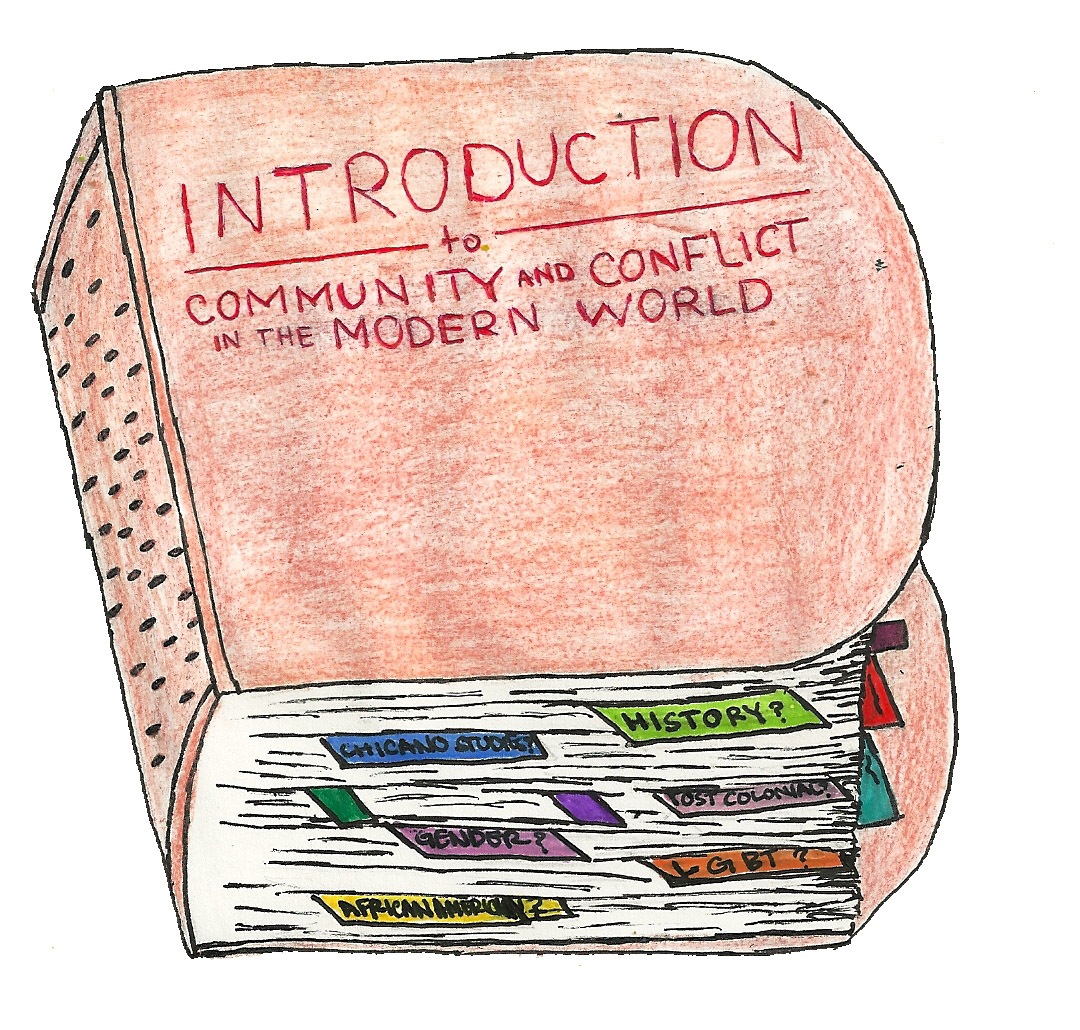When I think of the proposed “Community and Conflict in the Modern World” General Education requirement, three things immediately come to mind: the superficiality of General Education courses, cultural hostility on campus and the need to focus on racial sensitivity outside the classroom.
To remedy the first would require an idealistic overhaul of both high school and college curricula.
As for the second point, alleviation of hostility against underrepresented students cannot be achieved in one General Education requirement.
According to appeals made by two underrepresented groups in a resolution condemning hate crimes at UCLA, cultural hostility exists because of a lack of understanding among different groups on campus; and an academic requirement focused on diversity could facilitate understanding and acceptance of different cultures.
But achieving a more tolerant student environment can be done more efficiently and directly through empowerment and encouragement of student groups dedicated solely to topics such as cultural difference.
As the proposal currently stands, nothing substantially new is being implemented in the curriculum in terms of courses.
The proposed requirement amounts to a redesign of the undergraduate curriculum only in name. Courses that could fulfill the potential General Education requirement include those already taught in departments such as anthropology and Chicana and Chicano studies. And many of these courses ““ Introduction to Chicana/Chicano Studies: History and Culture for instance ““ already count for General Education requirements under different headings.
This proposal reflects a starting point, and efforts will be made later to initiate new courses dedicated entirely to the category proposed, said William I. Newman, professor of earth and space sciences.
Efforts toward an initiation of new courses rather than a reliance on courses already available will help strengthen what many faculty and students hope to achieve. Piecemeal introductions ““ a new category now, new courses possibly in the future ““ slow down the process. Those who support such proposals should demonstrate greater confidence in demanding new courses dedicated solely to modern issues, as the title of the proposed requirement itself suggests.
The requirement offers a starting point for students to initiate dialogue and venture out into new perspectives that will be beneficial for the UCLA community, said Megan Venanzi, a second-year English and political science student and student representative of the College Faculty Executive Committee.
But the proposed category is currently merely an extension of core subject areas such as history and political science that are already abundantly available.
Discussion in General Education classes usually amounts to circumventing touchy, political issues for the sake of preserving balance, respect and sensitivity to different views. And nothing stifles lively discussion more than the noticeable indifference of students who simply do not want to be there or who could care less about cultural conflicts to which they cannot relate to.
Modification of the General Education requirements, with a revived proposal for a diversity requirement, may change the technicalities of the undergraduate curriculum and may introduce students to important social tendencies, but it essentially reflects only an administrative Band-Aid response to campus hostility.
Basic, introductory exposure to important concepts is characteristic of General Education courses. And that is all a lower division course will offer in the span of ten weeks.
People will not bother to learn about a different culture when left to their own devices, and in general, extra exposure to diversity is not necessarily a bad thing, said Keef Hamm, a first-year law student.
But if a blunt label in the form of a course category is needed to help students discern and learn about multidimensional phenomena in our societies, it will take much more than one course to familiarize students with what they have already been learning throughout the entirety of their academic lives.
Cultural hostility on campus could be addressed in more pertinent and practical ways. Tolerance is best applied when demonstrated. Student advocacy groups and efforts outside the classroom have a more direct impact on those who need a sense of belonging in what may sometimes feel like a foreign environment.
The importance of extracurricular efforts should not be overlooked, whether or not the proposal passes during the faculty voting period. If the proposal does indeed pass, then immediate efforts should be made to at least make the requirement unique in substance and not just in name: Efforts to create new courses should be made immediately if what was previously lacking was an administrative platform.
One General Education course may expose students to a few memorized key terms and broad, surface concepts. Actual engagement with the community encourages students to seek perspectives deeper below the surface, to learn tolerance as citizens rather than as students.
A General Education course may reaffirm what some already know about tolerance; and it will go in one ear and out the other for those who have already solidified their narrow views regarding cultural hostility.
Email Torossian at atorossian@media.ucla.edu. Send general comments to opinion@media.ucla.edu or tweet us @DBOpinion.
